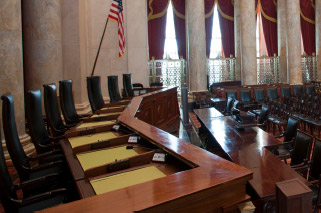- Washington D.C.(202) 644-9756
- Texas:(214) 272-2833
- Georgia:(770) 284-3147
- Florida:(407) 388-1900
- Colorado:(303) 630-9863
- Missouri:(314) 627-5099

(a) “employ any device, scheme, or artifice to defraud,” (b) “make any untrue statement of a material fact,” or (c) “engage in any act, prac- tice, or course of business” that “operates . . . as a fraud or deceit” in connection with the purchase or sale of securities. Read more about white collar crime under 10(b)(5). In Janus Capital Group, Inc. v. First Derivative Traders, 564 U. S. 135, this Court held that to be a “maker” of a statement under subsection (b) of that Rule, one must have “ultimate authority over the statement, including its content and whether and how to communicate it.” Id., at 142. On the facts of Janus, this meant that an investment adviser who had merely “participat[ed] in the drafting of a false statement” “made” by another could not be held liable in a private ac- tion under subsection (b). Id., at 145. Read more about this Federal Appeal:
Petitioner Francis Lorenzo, while the director of investment banking at an SEC-registered brokerage firm, sent two e-mails to prospective investors. The content of those e-mails, which Lorenzo’s boss supplied, described a potential investment in a company with “con- firmed assets” of $10 million. In fact, Lorenzo knew that the company had recently disclosed that its total assets were worth less than $400,000.